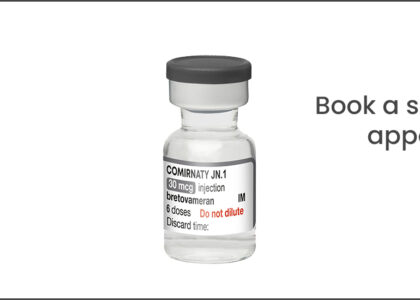Recent events have thrust the issue of junior doctor strikes into the spotlight, highlighting the far-reaching implications on various facets of healthcare. While the immediate focus tends to be on hospitals and patient care, it’s essential to recognise that these strikes reverberate beyond medical wards. In this article, we delve into the multifaceted impact of junior doctor strikes on the pharmacy sector, shedding light on the interconnectedness of healthcare services.
Disrupted Prescription Flow
One of the most tangible effects of junior doctor strikes is the disruption in the flow of prescriptions. As hospitals operate with reduced staff during strikes, delayed patient discharges and altered treatment plans can lead to a surge in prescription requests. Pharmacies, including North Harrow Pharmacy, often witness an influx of patients seeking medications, causing an increased workload and potential delays in dispensing.
Patient Education and Counselling
Pharmacists play a pivotal role in patient education and counselling, providing crucial information about medications, potential side effects, and proper usage. Junior doctor strikes can intensify this responsibility as patients might have limited access to their primary healthcare providers. Pharmacies must step in to bridge this gap, ensuring that patients receive comprehensive guidance for their prescribed treatments.
Supply Chain Challenges
The interconnectedness of the healthcare system means that disruptions in one area can trigger a domino effect. During junior doctor strikes, pharmacies might encounter challenges in securing the timely delivery of medications, exacerbating existing supply chain issues. Pharmacists must strategize to maintain inventory levels and navigate potential shortages to ensure patients’ medication needs are met.
Collaboration and Communication
Effective communication and collaboration between healthcare sectors are paramount during times of crisis. Junior doctor strikes underscore the importance of seamless information sharing between hospitals and pharmacies. North Harrow Pharmacy and similar establishments must establish robust lines of communication to adapt to changing prescription patterns and optimize patient care.
Emphasis on Primary Care
Junior doctor strikes often prompt a spotlight on the significance of primary care services. Pharmacies, operating on the front lines of healthcare, witness an increased demand for services like minor ailment consultations, vaccinations, and health advice. The role of pharmacies in delivering accessible and immediate care becomes even more pronounced during these times.
Conclusion
The impact of junior doctor strikes extends well beyond hospital walls, permeating into the realm of pharmacy services. Pharmacies like North Harrow Pharmacy have a unique vantage point, witnessing firsthand the intricate interplay between healthcare sectors. By adapting to the challenges posed by strikes and emphasising collaboration, communication, and patient-centric care, pharmacies contribute significantly to maintaining a robust and resilient healthcare ecosystem.





